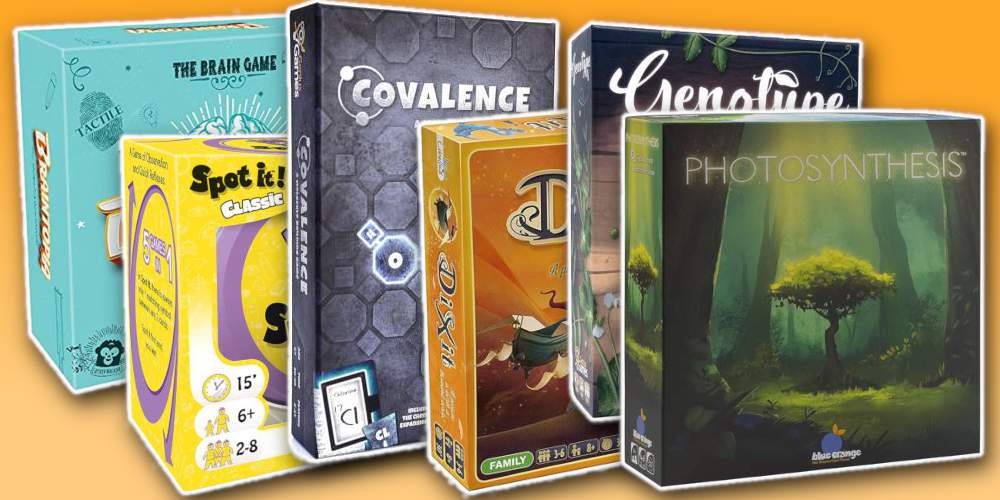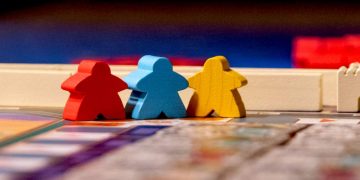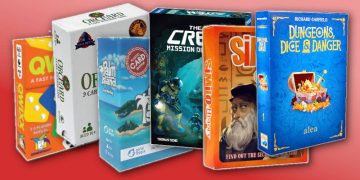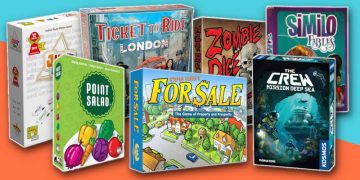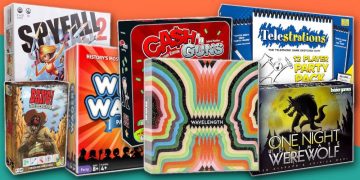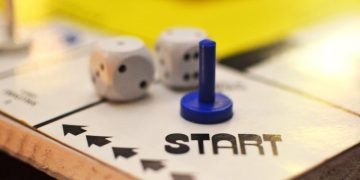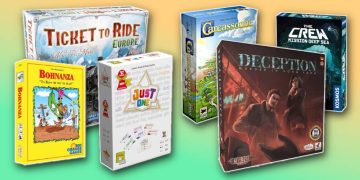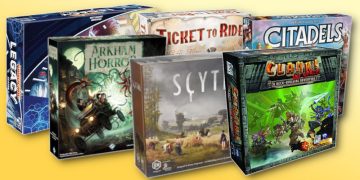Board games are great for so many reasons. They're social, they're tactile, they can last a long time if you take care of them—and they can be an educational experience for all ages.
There are so many great board games out there that are truly unique, so much so that they'll force you to start thinking in new ways and develop your brain and creativity.
And, more recently, there have been some amazingly educational board games built using real-world concepts and themes, that'll teach you things as you play.
Here are our picks for the best educational board games out there right now that are absolutely worth playing.
16. Braintopia Beyond
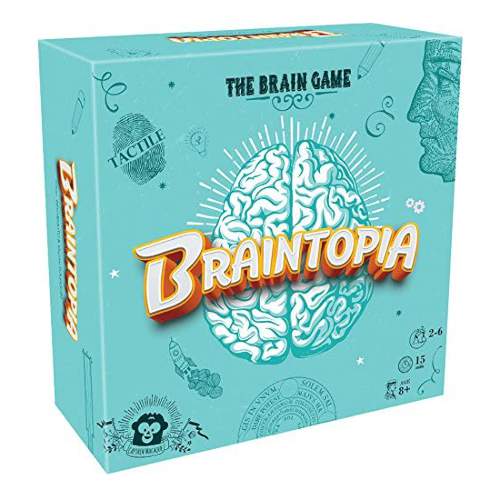
Players: 2 to 6 players
Ages: 8+
Game Length: 15 minutes
Braintopia Beyond is a uniquely fun board game that tests memory, focus, mental speed, sensory perception, and more. It even involves textured cards that are used to make players guess what they're feeling. Bet you've never had to do that in another board game!
Players compete against each other as they try to be the first to complete various challenges, like memorizing all the objects on a card, escaping a maze, or matching symbols.
15. Timeline
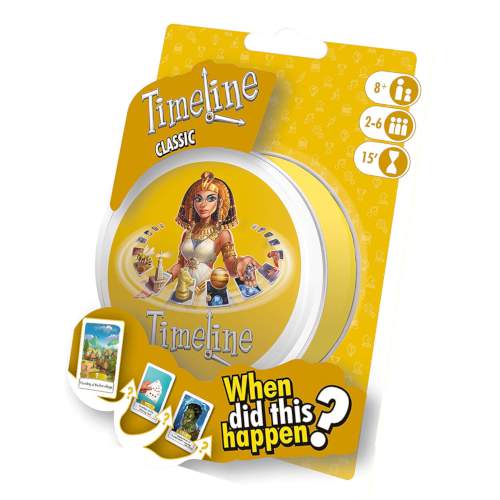
Players: 2 to 8 players
Ages: 8+
Game Length: 15 minutes
Timeline is a fun card game where players have hands of cards, with each card depicting a certain historical event, invention, or discovery; the backside has the year it happened. The goal is to get rid of cards by placing them in chronological order.
It's surprisingly fun despite how quick it plays, and it's a great way to learn history through gameplay. The more you play, the more you'll remember when things happened in the past!
14. Covalence: A Molecule Building Game
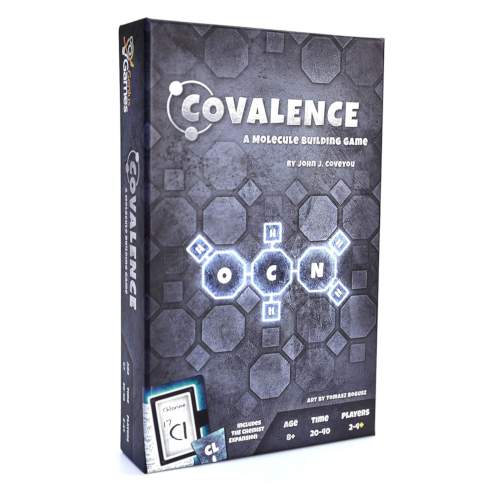
Players: 2 to 4 players
Ages: 8+
Game Length: 15 to 45 minutes
Covalence is a game where one player knows the organic makeup of secret compounds, and the rest of the players try to reconstruct those secret compounds using hints given by the master player.
With gameplay mechanics inspired by real chemistry, Covalence is a fun yet educational game that has a lot of replay value!
13. Spot It!
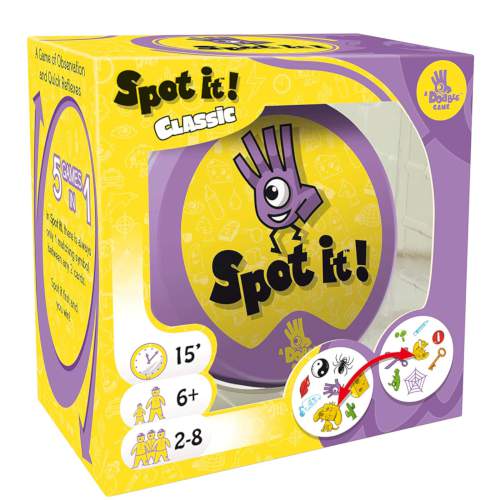
Players: 2 to 8 players
Ages: 7+
Game Length: 15 minutes
Spot It! (also goes by the name Dobble) is a pattern recognition card game. Every circle-shaped card has eight different symbols on it, and cards are revealed one by one with players racing to be the first to spot the symbol that's common between two cards.
While not exactly educational, Spot It! is a fantastic game that exercises the brain's creativity juices. Pattern recognition is an important skill that can come in handy in many ways!
12. Concept
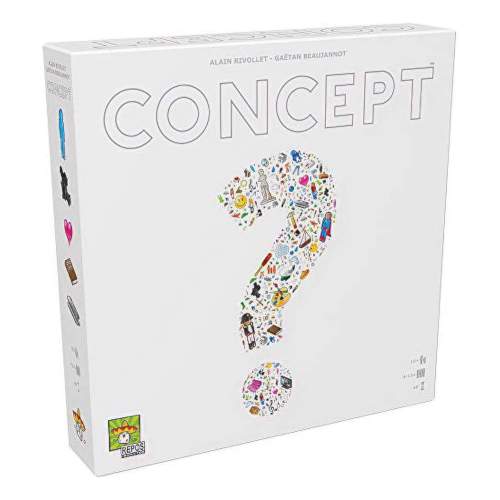
Players: 4 to 12 players
Ages: 10+
Game Length: 45 minutes
Concept is a wonderfully fun game where one player tries to convey a particular concept by placing small cubes on a board of abstract images. By placing the cubes in a certain order, on certain images, in different amounts—they all serve to describe the concept.
It's a creative exercise, both for the one who's trying to convey the idea as well as the other players who are trying to piece together what they're trying to say. It'll stretch your brain, for sure!
11. Blokus
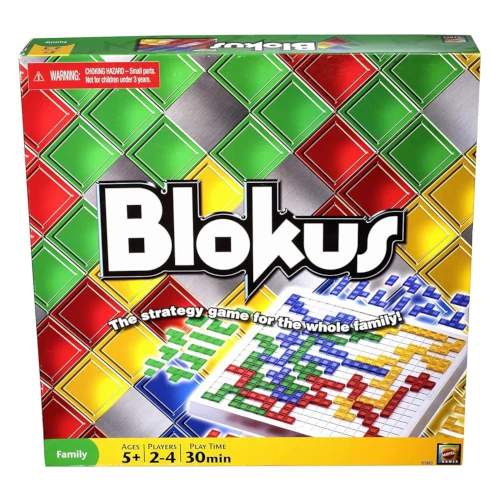
Players: 2 to 4 players
Ages: 7+
Game Length: 20 minutes
Blokus is a simple abstract strategy game where players compete to place all of their pieces on a grid before space runs out. The hard part is that everyone else is trying to do the same—and there isn't as much space available as you might think.
This game will have you thinking about space and shapes from every angle. Moreover, it'll have you competing against others in a game that's mentally challenging yet engaging.
10. Periodic: A Game of the Elements
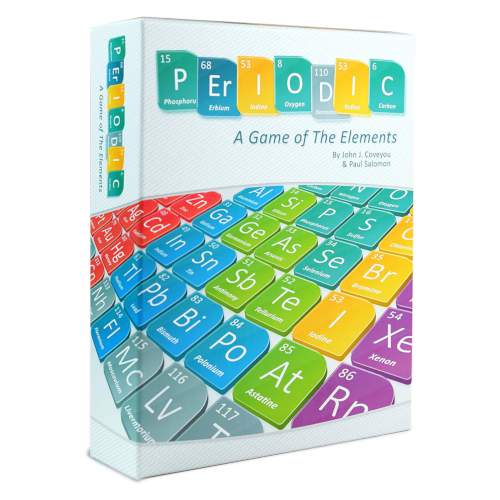
Players: 2 to 5 players
Ages: 10+
Game Length: 40 minutes
Periodic is a board game that's based on the—you guessed it—periodic table of the elements. Try to collect elements and move through the board, while staying true to real-world science (e.g. conservation of energy determines where you can move).
This science-inspired board game makes the subject fun for all players, and you'll undoubtedly learn about the periodic table of the elements every time you play.
9. Subatomic: An Atom Building Game
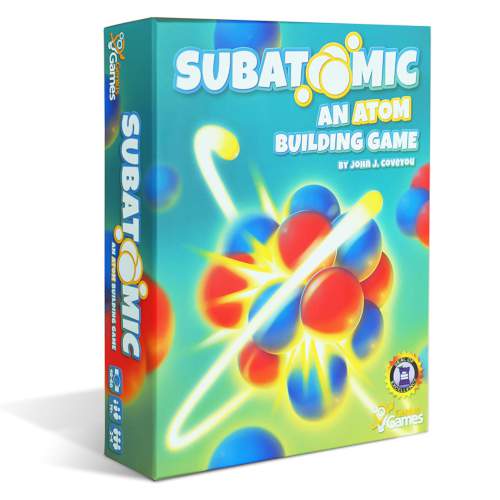
Players: 2 to 4 players
Ages: 10+
Game Length: 45 to 60 minutes
Subatomic is a card game where players start with a deck of proton, electron, and neutron cards. These cards are used to build atoms and construct elements. More powerful cards can be added to one's deck as well, allowing for different strategies.
Ultimately, Subatomic takes chemistry concepts and turns them into a solid deck-building card game that's sure to be a winner at the table.
8. Cytosis: A Cell Biology Board Game
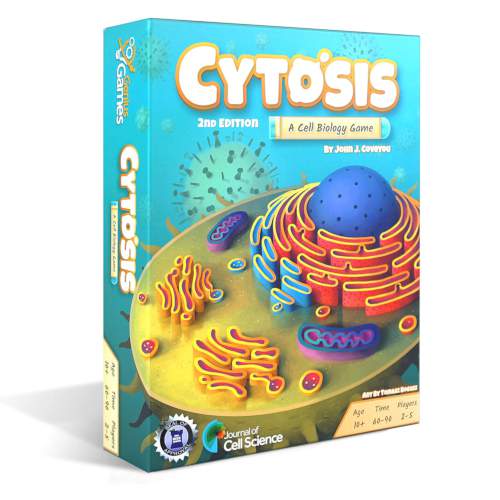
Players: 2 to 5 players
Ages: 10+
Game Length: 60 to 90 minutes
Cytosis is a worker placement board game set inside a human cell. The different areas of the cell provide different resources (like ATP for energy) or different actions (like converting resources).
Over the course of the game, players will build and interact with hormones, receptors, enzymes, and more to acquire Health Points. Whoever has the most Health Points at the end, wins!
This is a solid game for learning about cell biology through a board game, and the ideas are mostly accurate to real-world biology.
7. Evolution
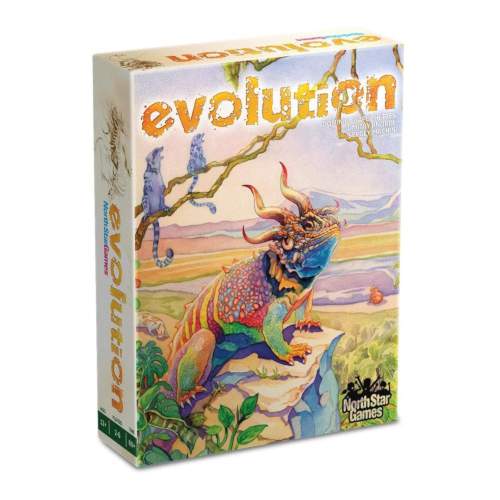
Players: 2 to 6 players
Ages: 12+
Game Length: 60 minutes
Evolution is a moderately complex board game where players try to develop their species in an ecosystem that's full of predators and scarce on resources. There's a lot of depth, and each play session will always be different than the last.
It's a great board game that demonstrates the ideas behind evolution. Stuart West, a Professor of Evolutionary Biology at the University of Oxford, has even used Evolution in his undergraduate class!
6. Photosynthesis
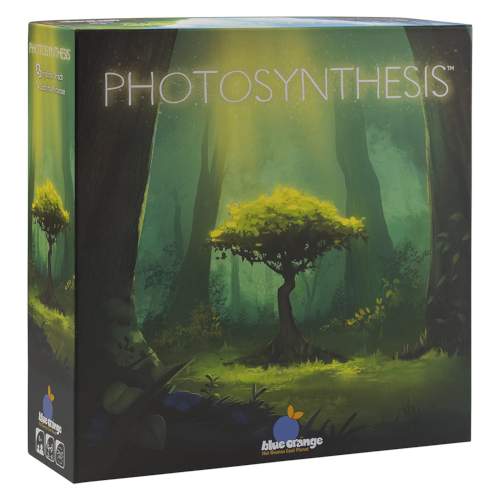
Players: 2 to 4 players
Ages: 10+
Game Length: 30 to 60 minutes
Photosynthesis is a board game about Earth science! More specifically, players are sowing seeds and developing a forest together while trying to outgrow their opponents. The sun moves around, so the name of the game is capturing as much solar energy as efficiently as you can.
5. Dixit
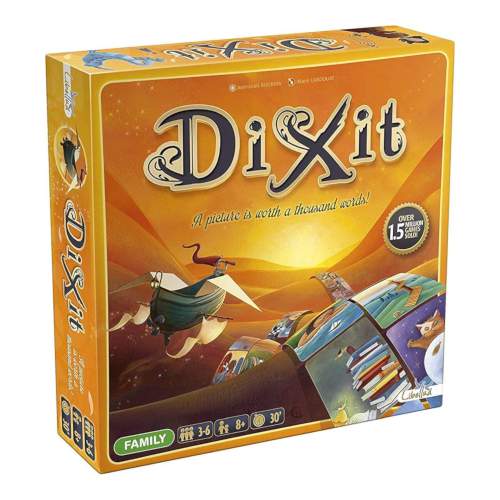
Players: 3 to 6 players
Ages: 8+
Game Length: 30 minutes
Dixit is one of the most creative board games you can play right now. The entire game is played using cards that have all kinds of unusual images on them.
Players take turns as the "storyteller" who describes the image on one card in their hand, then all players submit a card from their own hands with images that fit the description. The cards are all mixed together, then players try to guess the storyteller's card.
It's a game where you have to be descriptive but not too descriptive. At the same time, you have to be able to interpret and guess how other players think. Dixit will work your brain in unusual ways.
4. Oceans
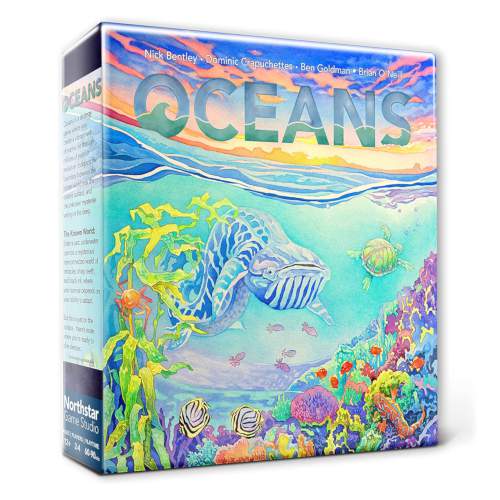
Players: 2 to 4 players
Ages: 12+
Game Length: 60 to 90 minutes
Oceans is similar to Evolution (they both share a designer) where players work to evolve a successful species, except this time it's deep in the ocean—which is full of threats and challenges.
But Oceans is a much simpler and more forgiving game than Evolution, with a gameplay that feels more satisfying for players who are looking for an engine-building game. It'll teach you a lot about adapting to the ever-changing circumstances of one's environment.
3. Decrypto
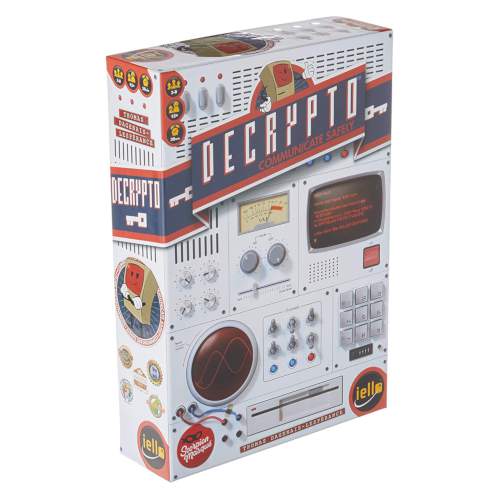
Players: 3 to 8 players
Ages: 12+
Game Length: 15 to 45 minutes
Decrypto is an exciting thinking game between two competing teams. Each team has a member sending coded messages to their teammates, and those teammates must decode those messages—while trying to intercept and decode the other team's messages.
Who knew a simple word game could be so thrilling? One mistake could mean the difference between winning and losing, so the stakes are always high.
2. Genotype: A Mendelian Genetics Game
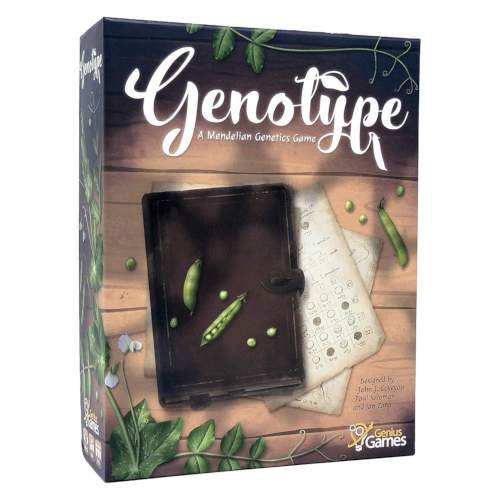
Players: 1 to 5 players
Ages: 14+
Game Length: 45 to 90 minutes
In Genotype, players are assistants to the great scientist Gregor Mendel and must work to control how their pea plants inherit traits from their parent plants.
Using a mixture of cards and dice, Genotype successfully incorporates the science of genotypes and phenotypes into a board game format that's fun, accurate, and educational. By playing, you'll learn more about how genetic inheritance works.
1. Wingspan
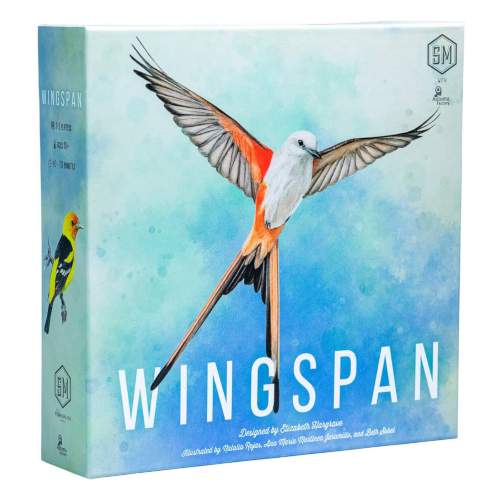
Players: 1 to 5 players
Ages: 10+
Game Length: 45 to 90 minutes
Wingspan is a card-based engine-building board game where players are... bird watchers? Yes, that's right! And not just bird watchers, but also collectors, researchers, and ornithologists.
The goal is for each player to attract the best birds to their wildlife preserves, and there are more than 170 birds in the game. The better your habitat, the better the birds that come flocking!
It's not just one of the best board games of the past few years, but Wingspan will have you learning about all kinds of birds. It's a great Earth science game if you can handle its complexity!
